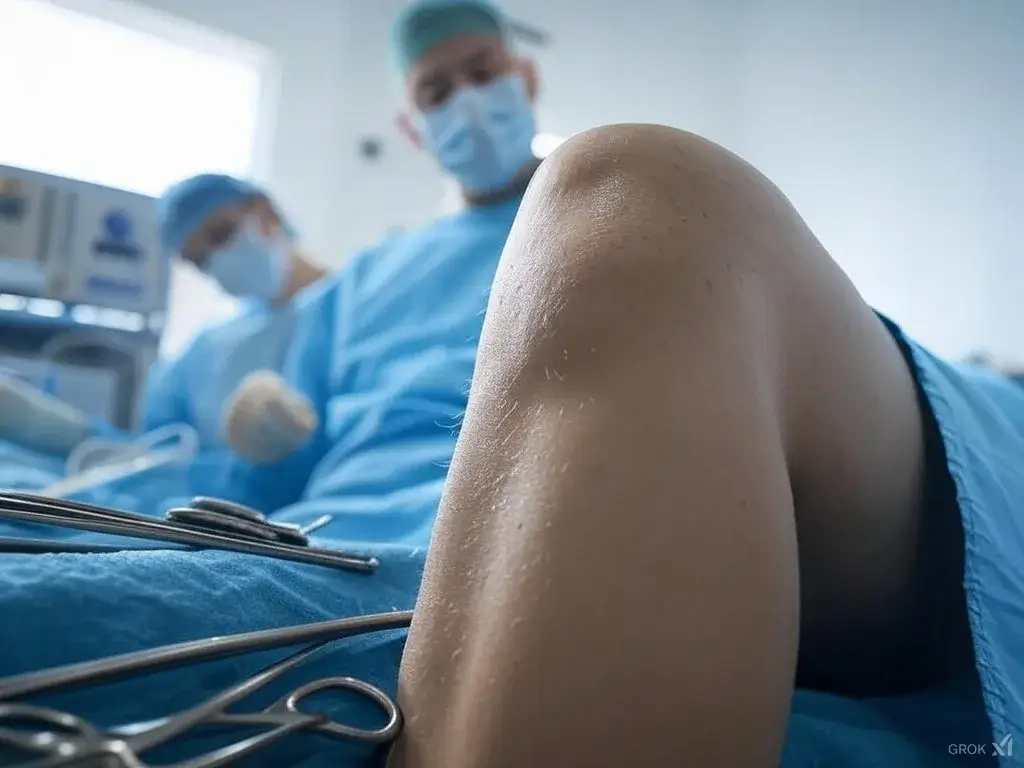What Are the Signs You Need Hormone Replacement Therapy?

As women approach menopause, their bodies experience significant hormonal changes, especially a drop in estrogen and progesterone levels. These shifts can bring on various symptoms, such as hot flashes, mood swings, sleep issues, low energy, and even a decline in bone health While these changes are a natural part of aging, they can be disruptive and make daily life harder to manage.
Hormone Replacement Therapy (HRT) is a treatment designed to restore hormone balance by replacing the estrogen and progesterone the body no longer produces in sufficient amounts. For many women, HRT offers relief and can improve their overall quality of life. However, it’s important to know when symptoms have become severe enough to consider this option.
If you’ve been wondering what are the signs you need HRT, you’re in the right place. In this blog, we’ll explore the most common signs that indicate HRT might be right for you and how it can help ease menopause-related symptoms.
10 signs you need hormone replacement therapy (HRT)
If you're experiencing symptoms related to menopause, it might be time to talk to your doctor about HRT. Here are some common signs that could indicate HRT is worth considering:
1. Hot flashes and night sweats (Vasomotor symptoms)
Hot flashes and night sweats are among the most common and uncomfortable symptoms of menopause, and they happen because of hormonal changes. As estrogen levels decrease, your body struggles to regulate temperature, leading to sudden waves of intense heat followed by sweating. You may experience hot flashes during the day, and night sweats can interrupt your sleep. These symptoms can make you feel very uncomfortable.
Research shows that around 75% of women experience hot flashes during menopause. However, HRT can help by bringing estrogen levels back to normal. It helps your body regulate temperature better, which can reduce how often and how intensely these hot flashes and night sweats occur.
2. Genitourinary symptoms (Vaginal dryness, Itching, Painful intercourse)
Estrogen is important for keeping the vaginal tissues healthy, moist, and elastic. When estrogen levels drop during menopause, these tissues can become thinner, drier, and less elastic, which may lead to discomfort, itching, and pain during sex.
Hormonal changes lead to a decrease in moisture levels in the vagina, causing dryness and irritation in about 50% of women. HRT, especially estrogen therapy, can help restore moisture and elasticity to the vaginal tissues, making sex more comfortable and improving overall vaginal health.
3. Sleep disturbances
Hormonal fluctuations during menopause can also disrupt your sleep patterns. As estrogen levels drop, women often experience insomnia or wake up frequently during the night, sometimes due to hot flashes or other symptoms like anxiety or physical discomfort. These disruptions can leave you feeling tired and irritable.
Estrogen helps regulate sleep, and its decline can contribute to poor sleep. By restoring estrogen levels, HRT can improve sleep patterns, helping you feel more rested and better able to manage daily activities.
4. Mood swings and irritability
During menopause, the fluctuations in estrogen and progesterone levels can have a significant impact on a woman’s mood. Many women report feeling more irritable, anxious, or even depressed during this time. These emotional symptoms can affect relationships, work, and daily life, making it difficult to feel like yourself.
Studies show that restoring these hormones through HRT can significantly improve mood and emotional well-being. Many women find that HRT helps them feel more balanced and better equipped to manage stress, ultimately improving their overall quality of life.
5. Memory problems or brain fog
Cognitive changes are another common symptom of menopause. Many women report experiencing forgetfulness, difficulty concentrating, and a sense of “brain fog,” which can make it hard to complete tasks or focus at work or home. These changes can be particularly frustrating and are often associated with declining estrogen levels.
HRT can help improve brain function by restoring estrogen’s effects. Research has indicated that women on HRT tend to experience improvements in memory, attention, and overall mental clarity.
6. Low energy and fatigue
Estrogen not only affects mood and cognitive function but also plays a role in energy levels. As estrogen levels decline, many women experience fatigue, feeling drained even after a full night’s sleep. Low estrogen can lead to changes in metabolism, energy production, and the body’s overall vitality.
HRT can help restore energy levels by replenishing estrogen, which plays a role in regulating energy and metabolism. Women who use HRT often report feeling more energized and better able to handle the physical and emotional demands of everyday life.
7. Decreased libido (Low sex drive)
Estrogen helps maintain sexual desire and function. As estrogen levels decrease during menopause, many women notice a drop in their sexual desire. This drop in libido can be due to hormonal changes and physical issues, like vaginal dryness, which can make sex feel uncomfortable or even painful.
HRT can help restore estrogen levels, which can increase libido and improve sexual comfort by addressing vaginal dryness and discomfort during intercourse. This can help restore a more satisfying and enjoyable sex life.
8. Bone loss or Osteoporosis
Since estrogen helps maintain bone density, a drop in its levels increases the risk of osteoporosis and bone fractures. Osteoporosis is a condition that weakens bones, making them brittle, and it becomes especially concerning for women after menopause.
HRT can help protect bone health by preventing the bone loss that occurs with reduced estrogen levels. Women who start HRT during menopause may reduce their risk of developing osteoporosis and experience better bone density. This can help prevent fractures and ensure stronger bones as they age.
9. Premature ovarian insufficiency (Menopause before age 40)
For some women, menopause occurs before the age of 40, which is known as premature menopause. This early onset of menopause leads to a more sudden and severe drop in estrogen, which can intensify symptoms and increase long-term health risks.
If you’re experiencing premature menopause, HRT is especially important for replacing lost hormones and reducing the risk of complications, such as osteoporosis and heart disease. Restoring estrogen through HRT can help manage symptoms and protect against long-term health issues.
10. Dry mouth (Xerostomia)
Dry mouth, or xerostomia, is another symptom that can occur during menopause, affecting many women as their estrogen levels decline. Estrogen plays a role in saliva production, and as its levels drop, you may experience less saliva, leading to a dry mouth. This can cause difficulty swallowing, a sore throat, and general discomfort.
HRT can help by restoring estrogen balance, which can improve saliva production and alleviate the discomfort associated with dry mouth.
Is hormone replacement therapy safe?
If you're thinking about HRT, you might have concerns about its safety. Like any treatment, HRT has both advantages and potential risks. For many women, it’s an effective way to manage menopause symptoms and can significantly improve quality of life by reducing hot flashes, sleep issues, mood swings, and vaginal dryness. Research shows that for women under 60 or those nearing menopause, the benefits generally outweigh the risks.
That said, HRT may not be suitable for everyone. Women who have a history of certain health issues, such as breast cancer or blood clots, may be advised against using it. Your doctor will evaluate your health and help decide whether HRT is a good choice for you. If it’s not the right fit, there are other treatment options to manage menopause symptoms.
The decision to use HRT should be made after consulting with your healthcare provider, who can help you assess the benefits and risks. With proper guidance, HRT can be a safe and effective treatment for many women going through menopause.
Considering hormone replacement therapy? Get in touch with QCG to find out how our medical tourism services can provide affordable and high-quality HRT treatments overseas!

